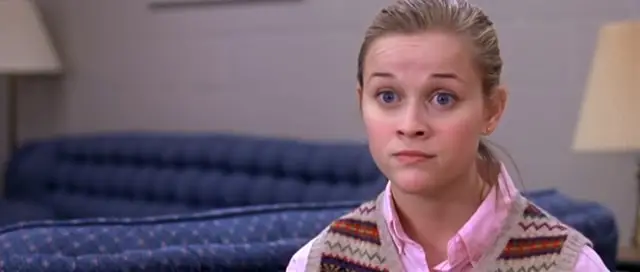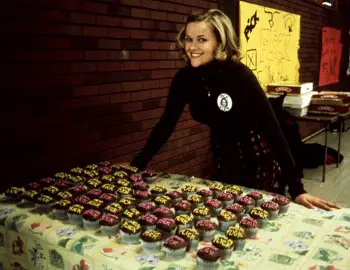by Jas Faulkner
The remaining members of the media who are not getting the vapors over Manti Te’o’s pretend girlfriend are finding true gold in the race to the stygian levels of athletic malfeasance still being run by Lance Armstrong.
Watching Armstrong try to be likeable on Oprah was like watching two komodo dragons reenact every meet cute scene ever written by Nora Ephron. You just don’t put someone who has been characterized as a bully and a liar and a cheat with an interviewer who was once visibly miffed because a schizophrenic child was less than impressed with the prospect of sitting down for a chat. The princess force was too strong on that soundstage for either party to come out looking particularly good.

Maybe -and this is just my own wackdoodle hypotheses here- just maybe it was because the interview was a rare example of two real life Tracy flicks facing off. Tracy Flick, for those of you who are trying to place the name right now, is the Reese Witherspoon character from Election. As played by Ms Witherspoon, she was a brittle little pushpin of a girl, willing to do anything to not only win, but destroy anyone who even questioned her suitability for whatever she wanted. During the course of the movie, she left a wake of fractured careers and irreparably changed relationships. To anyone following the Armstrong saga from his ascension to media darling to the object of so much schadenfreude, all of this has to sound very familiar.
Anyone whose professional well-being was allegedly threatened by Armstrong or his people may feel they had the last laugh at the attempts at spin with Oprah. Maybe it would be more accurate to call the Oprah debacle a penultimate giggle. Evidently, the Fates were doing their planning for Lance over Fuzzy Navels at the cosmic Chuckle Hut, because print trade scribes like L.A. Times’ Carolyn Kellogg have been reporting that two disgruntled readers want to file a class action suit against Armstrong and his publishers for misrepresenting his books, It’s Not About the Bike and Every Second Counts as nonfiction. At best, we could call these tomes creative nonfiction, which would be…Oh, I don’t know…Fiction?
So anyway, I found the document filed with the US District Court Eastern District of California online and looked at the way it was styled. The language is remarkably restrained, but then most legal pleadings are pretty dry on page one. Vituperation and sarcasm cloaked in the latinate curlicues of legalese never happen in the first half of a legal pleading. If you want to read the thing, you can find it here, courtesy of USA Today. Be warned. It weighs in at fifty-nine pages.
I read it, and then I sent it to an attorney friend, Fangy Sharkman (not his real name) because he loves stupid torts.
“Is this a stupid tort?” I asked.
“Anybody can sue for anything. You know that. What do you think?”
I sent phone shots of the legal pages from both books to Fangy to see if there was anything there that could give the plaintiffs a toehold. Alas for Lance, there is no disclaimer suggesting that any resemblance between the words in the book and actual events might be a true-ish coincidence.
We agreed that given the precedent in which two people attempted to sue everyone responsible for “Three Cups of Tea” was thrown out, it was unlikely the current legal action would prevail. The requested remedy was that Mortensen and Relin surrender all monies earned to promote actual humanitarian causes that did not include the bank accounts of Mortensen and Relin. Given that this altruistic reason for so much literary ire did not move the judge, it is unlikely that anyone duped by Lanny and the Jets will get much more sympathy.
Speaking of the duped, the pictures of the pages from Armstrong’s two books came from my own copies. Especially in light of the past few years, it is probably admitting to a degree of delusion to suggest that I kept those books, partially because I enjoyed them but mostly because I wanted them to be true. I wanted Armstrong to be the heroic person he said he was. Whenever the proverbial waste matter hits the fan about a former hero, there is a part of me that hopes it isn’t true. That exoneration rarely pans out and I know it, but I still hold out hope.
Do I regret it? Not really. Those good people, the Moe Bergs and the real life Atticus Finches and the good guys I’ve been lucky to meet as a sports writer show me and every other person what’s real and what is possible. They do amazing things and they do them the right way and even though it looks like there is some jock muse somewhere urging them on, the truth is they are showing us human potential writ large. So I am sadder and wiser about Lance Armstrong, but I haven’t lost faith in the power of sports to move us.
I have no idea if Armstrong will ever truly get his comeuppance. His soul twin in celluloid, Tracy Flick didn’t. If she hadn’t succeeded, I doubt if she would have felt anything remotely akin to remorse, so there would have been no real poetic justice . After all, you have to be changed for that to happen. Lance may be changed after this. One can hope. Tracy on the other hand, is most likely set in her ways. Given that she’s a character in a novel and movie, we can enjoy her evil little self and remain unsullied.

